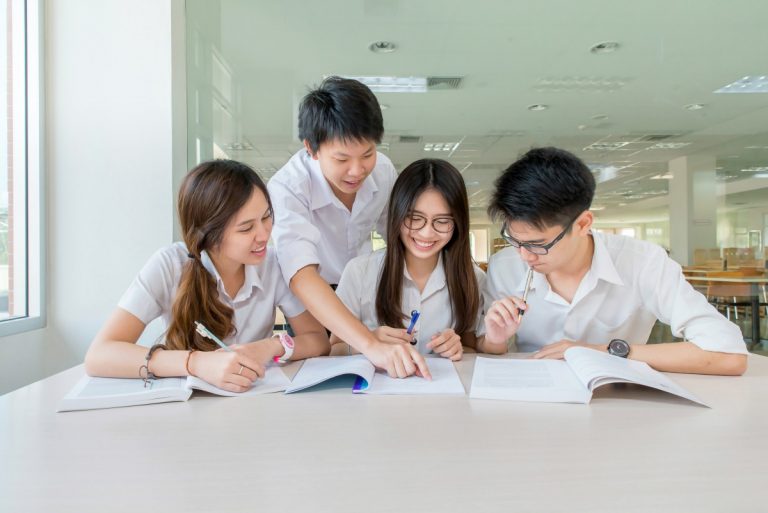
Students in Singapore, Japan and Hong Kong came out on top in the Programme for International Student Assessment (Pisa) study, which evaluates students’ collaborative problem solving skills.
The Pisa survey assesses the performance of 15-year-olds around the world in science, maths and reading. This year also saw the introduction of an assessment on how well pupils work with one another to solve problems, reports South China Morning Post (SCMP).
In a globally connected and technologically advanced world, the ability to work in a team to solve complex problems is more important than ever.
Singaporean pupils scored highest in collaborative problem-solving with 561 points, just ahead of Japan’s students who scored 552 points. Hong Kong ranked a close third with 541 points.
The mean score was 500 for the more than 125,000 students in the 52 countries that participated in the assessment.
https://twitter.com/MightifierApp/status/933296457083441152
The report authors said: “As the world becomes even more interconnected, it will need more people who know how to collaborate.”
Pupils were evaluated on their interactions and responses to computerised simulations in different scenarios.
In one scenario, teachers divided the class into three-person teams for a contest to answer 12 questions about a fictional country as quickly as possible, reported SCMP.
The top performers were able to handle tasks with high collaboration complexity, such as being aware of group dynamics, taking the initiative to overcome obstacles and to resolve disagreements and conflicts.
https://twitter.com/CommAMMO/status/933366982820401152
Hong Kong students achieved the second-highest proficiency level, meaning they exhibited complex problem-solving skills, such as being able to distribute and fulfil roles within a team, identify information needed to solve a problem and help settle conflicts within the group.
“I believe it shows that the city’s education reform in the past 20 years has been going in the right direction and that we’re not just teaching kids rote memorization,” Esther Ho Sui-Chu, director of the Chinese University of Hong Kong’s centre for international student assessment, told SCMP.
However, professor Bob Adamson, director of Education University’s centre for lifelong learning research and development in Hong Kong, said: “There are still areas, especially in soft skills, where there could be great improvement. Employers complain that our school graduates don’t have enough creativity, entrepreneurial skills and communication skills and are not internationalized enough. There’s still a lot of work to improve our education system.”
Liked this? Then you’ll love…
Singapore’s NTU beats NUS again to be Asia’s best university
You’re more likely to get a job as this Japanese uni graduate than of Oxford







